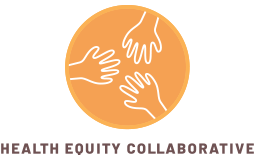23 Apr Progress Worth Celebrating During National Minority Health Month
Minorities in the United States still face pervasive health disparities. Yet as we mark National Minority Health Month this April, we should also applaud how far we’ve come. In recent years, new medicines have emerged to treat diseases that disproportionately affect people of color.
For example, sickle cell disease is a painful and debilitating ailment that overwhelmingly affects Black Americans, who in one recent study, accounted for 93% of those hospitalized with the condition. Hispanic people are also affected at higher rates than White people. Yet Black people suffering from sickle cell wait longer than other patients for treatment, and are less likely to receive pain medication. Enter Casgevy and Lyfgenia, two gene therapies that effectively treat the disease, both of which received FDA approval in December of last year.
Or consider obesity, which is experienced by Black and Hispanic Americans at higher rates than White people. The condition significantly increases a person’s risk of developing diabetes and cardiovascular diseases.
That’s why newly released drugs to treat obesity — such as Wegovy and Mounjaro — are so important. These medicines curb hunger, enabling adults and adolescents to lose weight. With similar drugs in development, children as young as six will likely soon become eligible, which could vastly improve their health outcomes over the long term.
There’s also hope in the fight against cancer. The drug Venetoclax, which fights acute myeloid leukemia, is narrowing racial survival gaps, according to a new study from the University of Pennsylvania.
To be sure, more can be done to expand access to new, lifesaving drugs.
In particular, scientists need to understand how novel treatments affect different groups of people. Minority groups are heavily underrepresented in clinical trials, which are a crucial stage of the drug approval process, as they allow developers and regulators to evaluate safety and effectiveness.
This National Minority Health Month, there’s still plenty of work to be done. While we must continue to ensure equitable access to innovative treatments for all adults and children, regardless of race or socioeconomic background – let’s also celebrate new treatments as important steps in the right direction.


